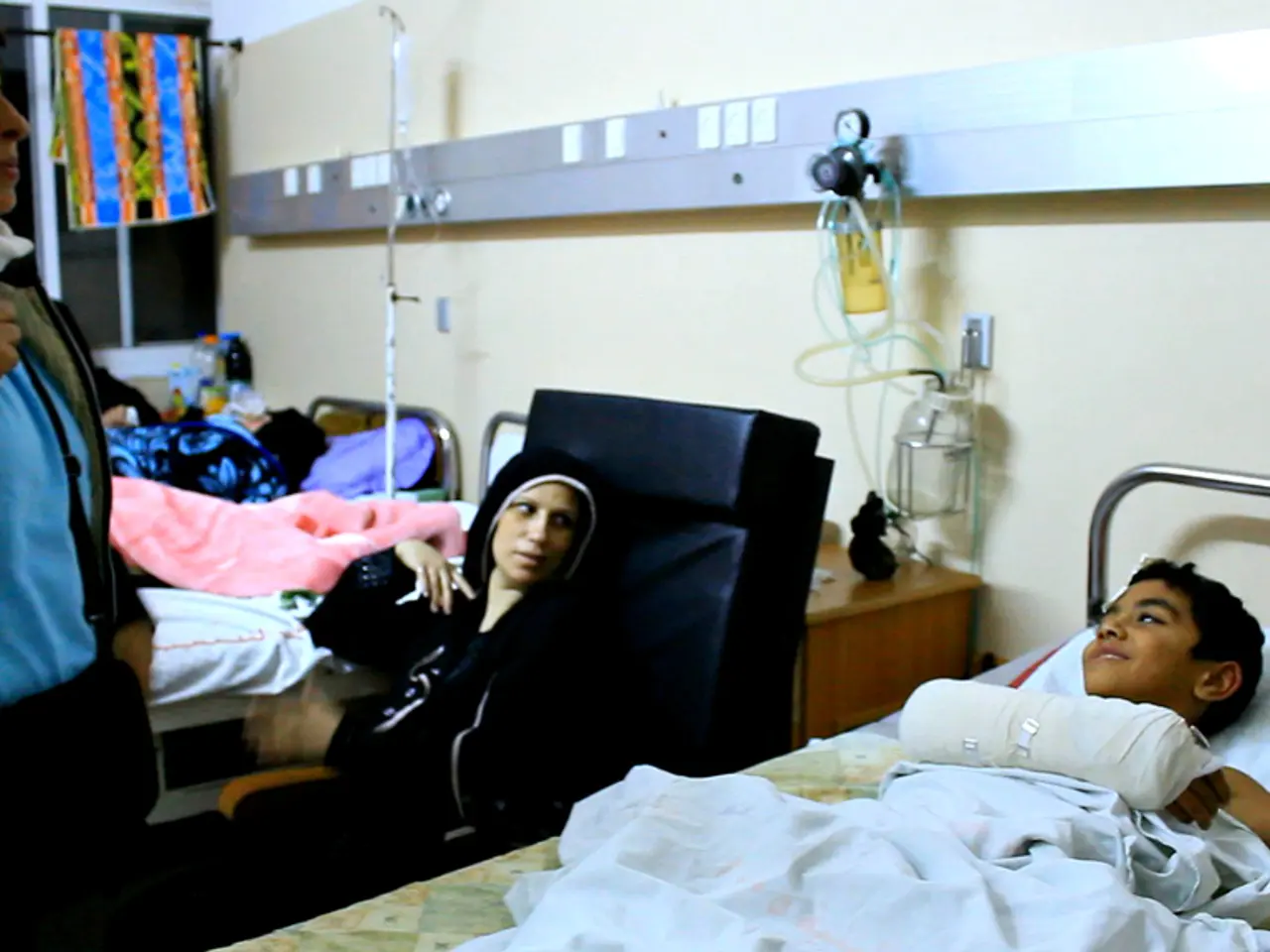High-risk patients need to be admitted into German healthcare facilities
In the aftermath of a devastating fire, refugees on the Greek island of Lesbos are facing dire conditions, living on the streets and in olive groves with no immediate medical care available. This situation has raised alarm among humanitarian advocates, including Dr. Gerhard Trabert, a homeless doctor from Mainz, who is calling for Germany to take in up to 2,000 high-risk refugees from the burned-out Moria refugee camp.
The improvised camps on Lesbos are currently without medical care due to the withdrawal of Greek rescue forces out of fear of the coronavirus. This lack of medical support has led to an increase in preventable diseases, with many children and adults suffering from skin diseases such as scabies. Furthermore, chronically ill refugees on Lesbos do not have access to necessary medication for conditions like high blood pressure and diabetes.
Dr. Trabert, who has provided humanitarian aid in various crisis areas, emphasizes the need for immediate evacuation of these high-risk refugees. He is particularly concerned that without immediate medical care, refugees could die from diseases that could have been easily treated.
The health situation on Lesbos is currently extremely tense, with many refugees still traumatized after the war and the fire. The Greek government, in close coordination with the EU, has implemented strict border and asylum restrictions, including suspending asylum processing for many groups and enforcing containment policies rather than transfer or resettlement.
These policy changes are coupled with EU agencies like Frontex supporting pushbacks and border enforcement rather than facilitating relocation of vulnerable individuals. As a result, the Greek government and the EU focus on limiting arrivals and confining migrants to remote or makeshift facilities, often with minimal aid access. This restrictive environment limits opportunities for Germany or other European countries to take in refugees directly from camps like Moria without explicit political agreements or resettlement programs that appear currently stalled or deprioritized.
The lack of German intake of high-risk patients from Moria is due to these evolving European migration policies favoring containment and restricted asylum over humanitarian relocation initiatives, despite the urgent calls for medical evacuations from humanitarian advocates such as Dr. Trabert. The situation on Lesbos serves as a stark reminder of the urgent need for compassionate and effective humanitarian response in the face of ongoing crises.
- Other high-risk refugees on Lesbos are also affected, as they do not have access to essential medical care for chronic diseases like diabetes and high blood pressure.
- In addition to skin conditions, mental health is another area of concern, as many refugees are struggling with trauma related to the war and the fire.
- Beyond medical care, basic health-and-wellness needs, such as skin care products, are unavailable for the refugees on Lesbos.
- The urgent call for Germany to take in high-risk refugees is especially pertinent in the context of Lesbos' current predicament, where respiratory-conditions could potentially worsen due to the crowded and unsanitary living conditions.




